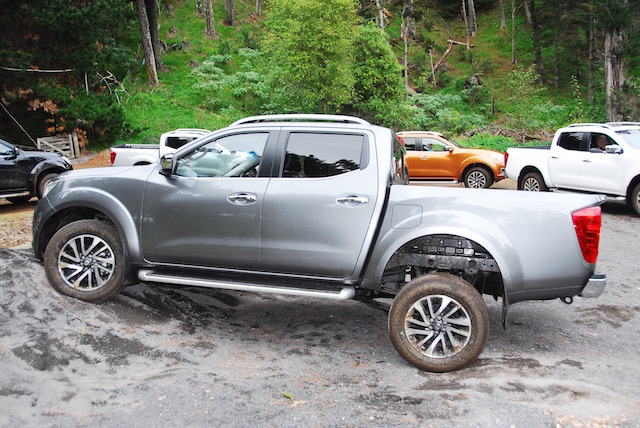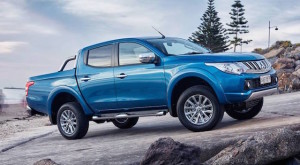
The next-generation Nissan Navara and Mitsubishi Triton utes are not due in New Zealand for another eight years or so – but they will almost certainly share the same platform and componentry, like the current Ford Ranger and Mazda BT-50.
Nissan Motor Company CEO Carlos Ghosn said as much after he signed a deal with his Mitsubishi Motors Corporation (MMC) opposite Osamu Masuko to buy a controlling 34 per cent share of the smaller Japanese carmaker.
It’s a US$2.2 billion rescue package of sorts, after MMC’s share price tumbled on an admission that it faked data to overstate the fuel efficiency of more than 600,000 small cars for Japan’s domestic market. MMC also faces financial penalties.
Nissan NZ managing director John Manley last week told Automotive News NZ that he expects platforms and technology to be shared between the two carmakers further down the line. “That’s where the (development) savings come in,” he said.
Now Ghosn – CEO of the Renault-Nissan Alliance – has said it was “very possible” that future Tritons and Navaras in particular would share platforms. The current Navara is pictured at top.
“Instead of two platforms, we can make two cars on one platform,” he told a teleconference. “The costs will be lower. We will have a common platform and different products.”

He said Nissan and Mitsubishi would co-operate across the product range to cut platform development costs, but the vehicles would differ in flavour.
“What the customer will see and experience will be totally different, in line with the brand DNA of both brands. The MMC brand, Nissan brand and Renault brand are all different.”
Ghosn ruled out reorganising either production facilities or dealer networks. “For marketing and sales there will be a complete separation of the companies.
“Some dealers might have two brands in one showroom. But marketing and sales will be totally separate and distinct, in line with the brand identities of both companies.”
Ghosn said the two companies would pool their resources to produce new electric vehicles and plug-in hybrids. “There is some technology that MMC has that Nissan doesn’t have, for instance plug-in hybrid technology. This is good for Nissan.
“We can immediately leverage their platform, reducing our technology development costs, and MMC can increase scale which will decrease their development costs.
“However the vehicles we produce will look different as both companies have different specs, but the core technological aspects are the same.”
The two companies would also work together on the development of autonomous vehicles. “We will share development of existing autonomous drive technology. This means for Nissan and MMC we will pay less money for a better outcome. Connectivity is the same.”
Ghosn said bringing the two companies closer together would help improve each brand’s performance in markets where the other is stronger. “MMC is stronger in South-East Asia, Nissan is strong in the US and Europe. So we have specific strengths.
“In no way is this tie-up limited to the growth of one company or the other. You should see stronger companies that aggressively support each other.”
Ghosn said he was not concerned that the Nissan or Renault brands would be effected by MMC’s faking of fuel figures. “Not at all. The reputation of Renault has been consistent for the last 17 years and has no impact on Nissan. And vice-versa.”
